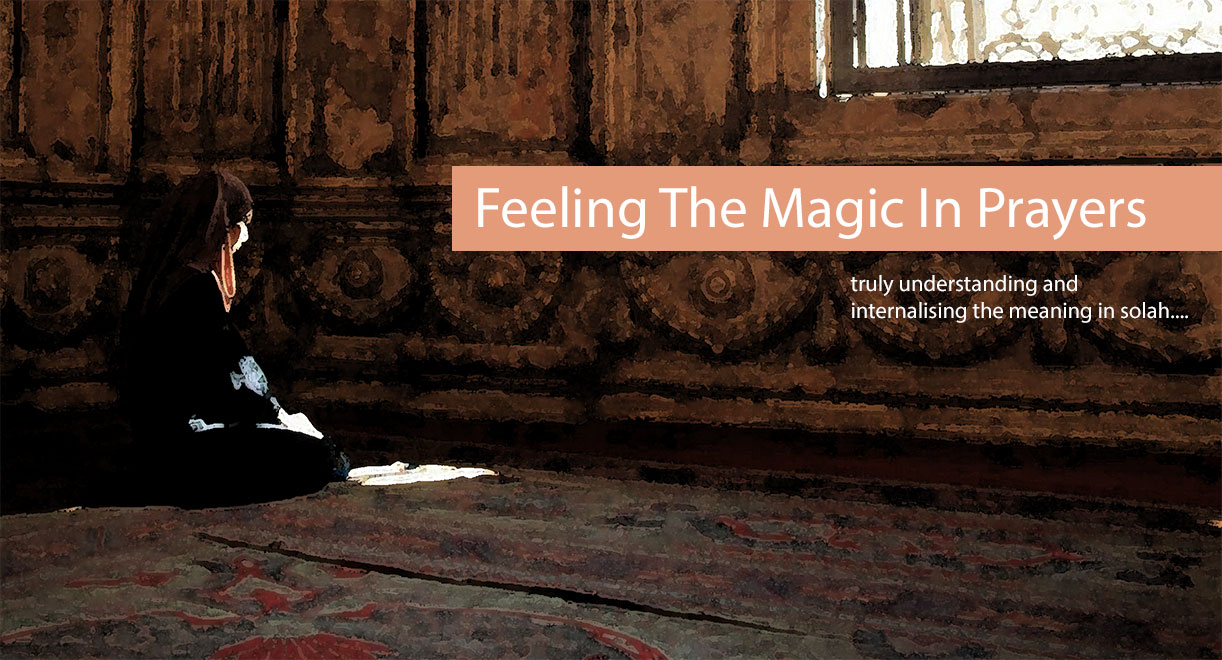REPRINTED WITH PERMISSION FROM EVE MAGAZINE: BALANCING MODESTY AND IDENTITY
So you may know Muhammad (sas) as the Messenger of Allah (swt), His mercy to mankind, the conduit of the Qur’an, the most beloved of creation, the most perfect in manners, a master statesman and a brilliant teacher. But aside from his deep spiritual insight, emotional intelligence and socio-political prowess, did you know that the Prophet (sas) was also sent to educate us on issues of physical health and well-being? Don’t believe me? Let’s look at some of the most conventional health wisdom of the day and see if the Prophet (sas) had anything to say about it:
1. Portion Control. As every doctor, dietician and concerned parent can attest, one of the most alarming trends of the modern era is the growing problem of over-eating. Never before in history have people been so easily able to access such a variety and quantity of food on such a consistent basis. That, coupled with the Super-size Me culture of consumption propagated by fast-food giants means that almost everywhere humans are eating more and more and facing all kinds of associated health problems in the process. No wonder health experts are urging us to simply eat less. In fact, numerous recent studies have shown that restricting the typical modern diet by as little as 15% has tremendous benefits for overall health and longevity.
How blessed we are that the Prophet (sas) warned us centuries ago: “Nothing is worse than a person who fills his stomach. It should be enough for the son of Adam to have a few bites to satisfy his hunger. If he wishes more, it should be: one-third for his food, one-third for his liquids, and one-third for easy breathing.” (Tirmidhi).
2. Whole grains. Whether you pick up any contemporary health magazine, surf the internet or watch Dr. Oz, the advice is always the same: choose whole grains. The process of refining cereals and grains has changed dramatically in the last century. In the quest to create perfectly polished white rice and silky smooth white flour, we have abandoned most of the good stuff that used to make these foods healthy. Considering what a large proportion of our day-to-day meals consist of bread, noodles and rice, it is no wonder so many of us eat abundantly yet still suffer from nutritional deficiencies. The Prophet (sas) specifically discouraged the consumption of bread made from refined flour. He encouraged his companions to enjoy barley more often instead of wheat (Bukhari). Interestingly, many experts are only now advocating shifting away from our heavy reliance on corn and wheat and switching over to heartier “ancient grains” including rye, millet, quinoa, and, you guessed it, barley.
3. Less red meat. Regular consumption of red meat has been associated with heart disease, Alzheimer’s, rheumatoid arthritis, endometriosis and certain cancers. The Prophet (sas) rarely ate meat. He is reported to have said “Beware of meat, as it has a ferocity like that of wine” (Malik). He also warned his followers to be way of beef in particular, saying “it carries disease” (Hakim). How interesting that the Prophet (sas) made these suggestions 1400 years ago. How much more cautious should we be today, in the era of genetically modified foods and factory farming?
4. Oral Hygiene. There is growing evidence that the impact of oral hygiene on general health is profound. Indeed, oral disease leads to an increased risk for cardiovascular disease, bacterial infection, diabetes and osteoporosis. The Prophet (sas) was particularly sensitive to bad breath and cleaned his teeth with siwak (from the Arak tree) several times a day. He once expressed: “Had it not been difficult for my followers I would have ordered them to use siwak before each prayer.” (Bukhari and Muslim). He was also known to rinse his mouth with water after drinking milk, saying “It has fat.” (Bukhari and Muslim).
5. Sleep. The importance of sleep to good health may seem like a no-brainer. But it is not the quantity of sleep that matters nearly as much as the quality. One of the easiest things you can do to ensure quality sleep for yourself is to sleep in accordance with your natural circadian rhythm. That means to sleep early, rise early and take a short afternoon siesta. The Prophet (sas) had many remarkable things to say about timing sleep right. First, he forbade staying up all night, even to engage in worship:“Offer prayers but also make sure to sleep at night as your body has a right over you” (Bukhari).
Second, he firmly discouraged staying up needlessly after ‘Isha prayer, even if it were for useful discussion. (Bukhari). Scientists now know that the hours between 10 pm and 2am are essential for internal detoxification and hormone regulation. People who habitually stay awake during those hours suffer from all kinds of health problems, most notably a decline in immune response.
Finally, the Prophet (sas) emphasized the importance of an afternoon nap, both in words and personal practice (Muslim). Extensive modern research has shown that taking a nap for as little as 15 minutes increases energy and performance while improving cognitive function, memory consolidation and overall well-being.
It is also interesting to note that RasulAllah (sas) directed his followers to sleep on the right side and strongly opposed sleeping on the stomach. Sleeping on the right side has since been found to enhance circulation while putting the least strain on the heart and spine. Sleeping on your stomach, on the other hand, is bad for your back, bad for your internal organs and bad for your nervous system. What insight the Prophet (sas) had to offer us, if only we pay attention!
One of our central duties as Muslims is to be as strong and healthy as possible for the sake of God. What better place to start than the Prophetic wisdom? As Allah (swt) reminds us in the Qur’an:
“You have indeed in Allah’s Messenger an excellent pattern of conduct…” (35:21).
The more science uncovers, the more we’ll likely find that there is a whole world of interesting health tips embodied in the Prophet’s practice. In the meanwhile, why not capitalize on the knowledge we already have? How blessed we are to be part of a religion where even taking care of your body counts as an act of worship. May Allah (swt) enable all of us to follow the Prophet’s beautiful example and improve our health (and our lives) in the process. Ameen









